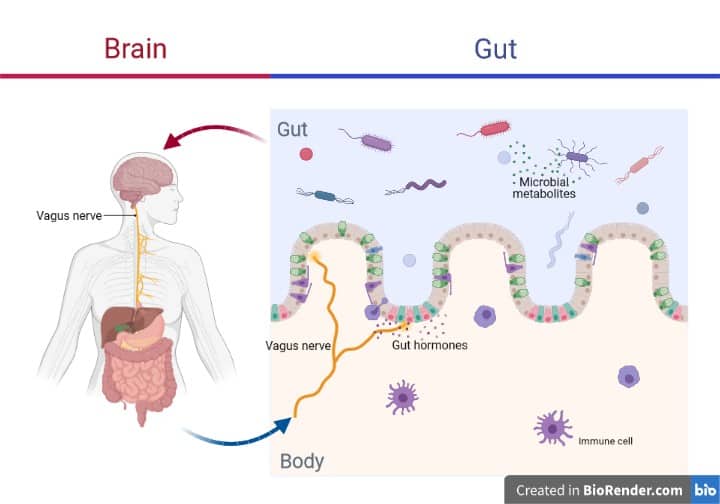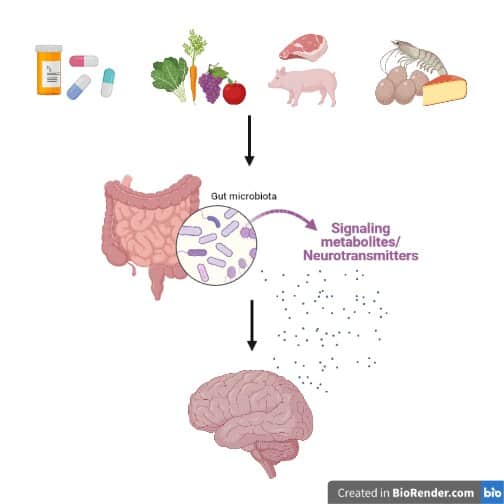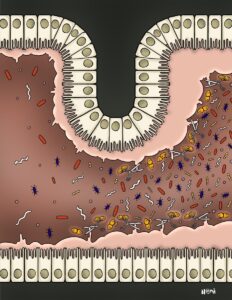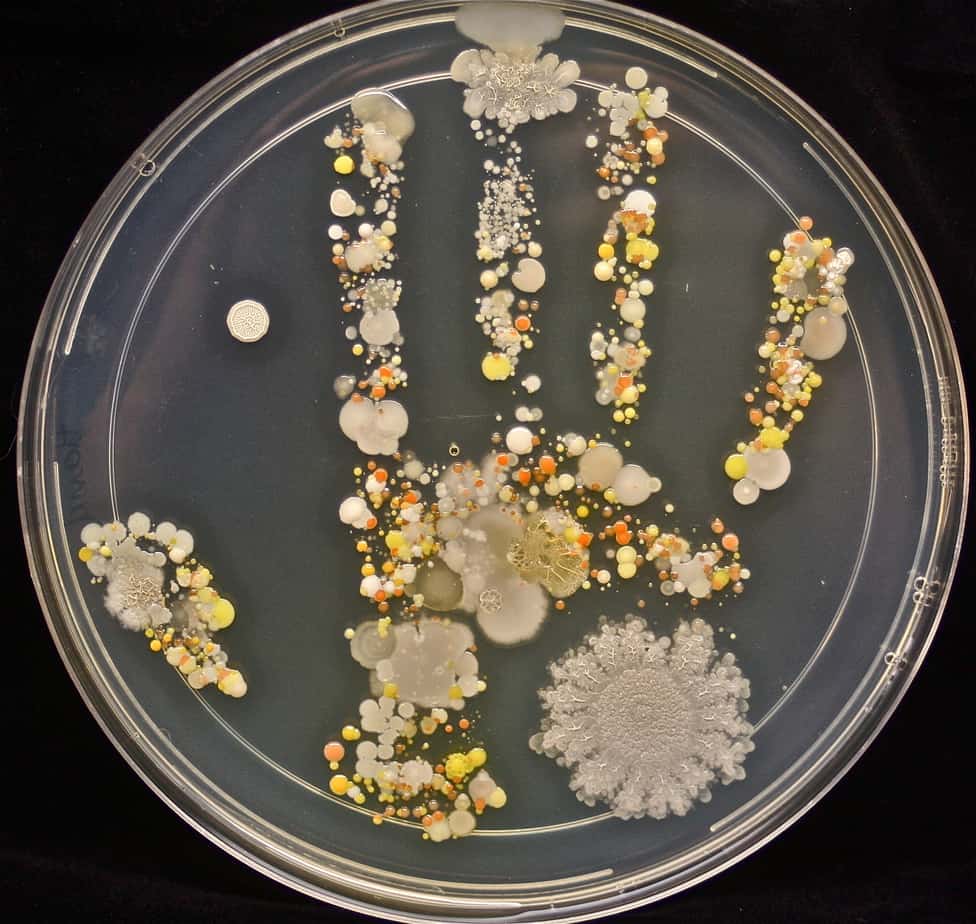Often in life, we “just follow our gut instinct”. Even though these instincts appear out of nowhere, they are not completely random.
But do these gut feelings really come from our gut? Should we trust our gut?
Well, the answer is not simple.
Though gut feelings originate in the brain, they are driven by the microorganisms inside our gut. Scientists have found that more microbes live in the gut than we have body cells!
So, we are not alone in our bodies. Inside your gut live trillions of microorganisms collectively called the microbiome. Its combined weight is greater than the weight of the brain itself.
What’s more, these microorganisms together have around 20 million genes. Compared to our 20,000 genes, microbial genes are a lot more complex!.
Our gut microbiome and our brain talk to each other
To understand brain diseases, researchers started to look away from the brain. And they ended up connecting them with the gut microbiome. Although it is not yet known exactly how the gut and brain talk to each other, some studies suggest it might happen directly through the gut-brain axis.
This direct line of communication between the brain and the gut occurs through a nerve called the vagus nerve. The vagus nerve has receptors close to the gut covering. Like this, it keeps track of our digestion.
Microorganisms in the intestine digest part of our foods and produce lots of molecules. Some of these can stimulate the vagus nerve, thus tuning the brain’s activity.

However, there are other ways by which the gut microbiome could impact the brain. For example, some gut microorganisms send some of their produced molecules directly into the blood. These chemical messengers then travel to the brain through the bloodstream.
Half of all molecules in our blood are likely produced by microbes or tweaked by the gut microbiome. For instance, some gut microorganisms help produce neurotransmitters like serotonin. These affect the communication between brain cells and thus influence cognitive abilities like learning and memory.
How the gut microbiome influences our mood and mental health
At some point, we all feel anxious. You might feel this as torment in the stomach.
Generally, that might not be a cause of concern. However, abnormalities in the gut-brain communication are also linked to several neurological diseases such as depression, mood disorders, Parkinson’s disease, epilepsy, bipolar disorder etc. Hence, the organization of our gut microbiome directly influences our mental health.
Researchers have started to shed light on the connection between mood disorders and imbalance of the gut microbiota. For this, they often study animals that mimic chronic stress or depression.
For example, they found that when certain bacterial strains are missing in our guts, we might show depressive behaviour. These bacteria usually produce certain lipid molecules called endocannabinoids, which have mood-improving effects on us. If these bacteria are missing in our gut, they produce fewer endocannabinoids. Lacking these molecules, we can get into a depressive mood.
Does an irritated gut mean an irritated mood?
Similarly, people with intestinal diseases like irritable bowel syndrome, often also suffer from depression-like symptoms. Conversely, people with brain abnormalities like autism spectrum disorder and Parkinson’s disease might also suffer from digestive issues like constipation.
Our gut microbes play vital roles inside our bodies and can influence our behaviour. Maybe by focusing on gut microbes, we can correct some behavioural alterations in neuropsychiatric disorders.
Similarly, transferring microbes from a healthy person to a person with an illness are therapeutic options. However, more investigations are needed to better understand the connection between gut and the brain. Further research might lead to better medicines for neuropsychiatric diseases.
Improve your gut microbiome for a better mental health
You may know the saying “a healthy mind resides in a healthy gut”. Hence, a sound gut might be a significant initial step to a better and more joyful psyche. A healthy gut microbiome is fundamental not only for good digestion but also for your overall well-being.
An imbalance in your gut microbiome can lead to several illnesses ranging from mental diseases to obesity to heart diseases or cancer. So, by feeding your gut microbiome a balanced diet, you not only support your physical but also your psychological health!









